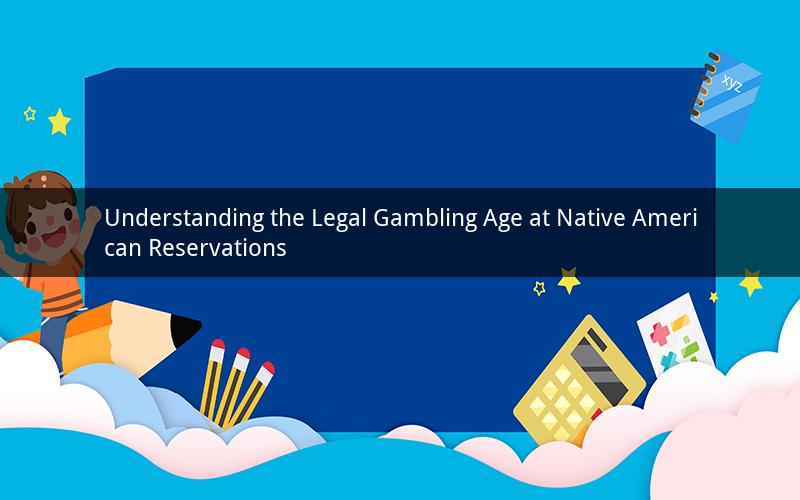
Introduction:
Native American reservations are unique in that they operate under a different set of laws and regulations compared to the rest of the United States. One of the most common questions regarding these reservations is the legal age for gambling. This article delves into the topic of how old you can gamble at the reservation, providing insights into the laws and regulations that govern this issue.
1. The Legal Age for Gambling at Native American Reservations:
The legal age for gambling at Native American reservations varies by state and tribe. Generally, the minimum age to gamble at a reservation casino is 21 years old, the same as in most states. However, some tribes have implemented their own policies, allowing individuals as young as 18 or 19 to gamble on their reservations.
2. The Indian Gaming Regulatory Act (IGRA):
The Indian Gaming Regulatory Act (IGRA) of 1988 is the primary federal law that governs gambling on Native American reservations. The IGRA establishes a three-part framework for tribes to regulate gambling on their land, including:
a. The establishment of a tribal gaming commission to oversee the operation of gambling facilities.
b. The requirement for tribes to enter into a compact with the state in which the reservation is located, outlining the scope and types of gambling allowed.
c. The prohibition of certain forms of gambling, such as sports betting, without the consent of the state.
3. Compacts and Tribal Gaming Commissions:
The compact between a tribe and the state determines the minimum age for gambling on a reservation. While the majority of compacts mirror state laws, some tribes have chosen to set a lower age limit for gambling. Additionally, tribal gaming commissions are responsible for enforcing the minimum age requirements and ensuring compliance with the IGRA.
4. The Impact of Minimum Age Requirements:
The legal age for gambling at Native American reservations can have a significant impact on tribal economies and the overall gaming industry. By setting a minimum age of 21, tribes can attract a broader audience and generate more revenue. However, lowering the age limit may increase gambling participation among younger individuals, potentially leading to increased problem gambling and other social issues.
5. The Role of Tribal Governments:
Tribal governments play a crucial role in regulating gambling on their reservations. They are responsible for ensuring that gambling facilities are operated ethically and responsibly. This includes implementing policies to prevent underage gambling, as well as addressing any potential social consequences of gambling.
Questions and Answers:
Q1: Why do some tribes have a lower minimum age for gambling compared to state laws?
A1: Some tribes may choose to set a lower minimum age for gambling to attract a younger audience and boost their gaming revenue. However, this decision is subject to federal and state regulations, as well as tribal gaming commissions.
Q2: Can a Native American under the legal gambling age gamble at a reservation casino?
A2: Generally, no. Individuals under the legal gambling age are not allowed to gamble at reservation casinos. However, there may be exceptions for tribal members or their immediate family members, depending on the tribe's policies.
Q3: How can tribes enforce the minimum age for gambling?
A3: Tribes can enforce the minimum age for gambling by implementing ID checks at the casino entrance, using age verification systems, and training staff to identify and prevent underage gambling.
Q4: Are there any restrictions on the types of gambling allowed at Native American reservations?
A4: Yes, the IGRA restricts certain forms of gambling, such as sports betting, without the consent of the state. Additionally, tribes may choose to limit the types of gambling offered at their casinos based on their compact with the state.
Q5: How can individuals determine the legal gambling age at a specific Native American reservation?
A5: To determine the legal gambling age at a particular reservation, individuals can check the tribe's official website or contact the tribal gaming commission. They can also refer to the compact between the tribe and the state to understand the specific regulations in place.
Conclusion:
The legal age for gambling at Native American reservations is a complex issue that is subject to federal, state, and tribal laws. While the majority of tribes have a minimum age of 21, some may allow individuals as young as 18 or 19 to gamble. Understanding the regulations and the role of tribal governments in enforcing these laws is essential for both visitors and tribal members.